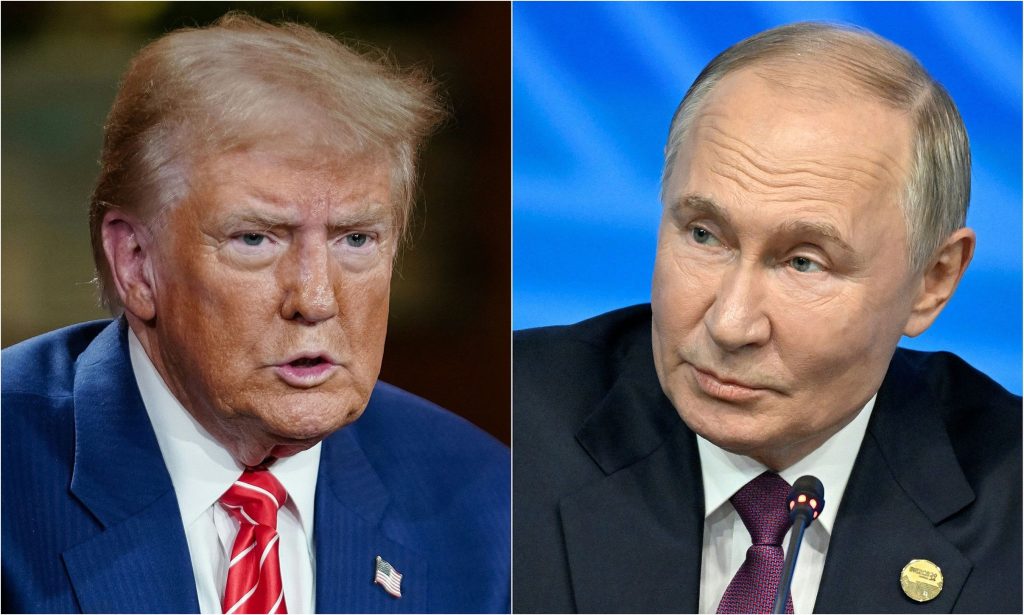Chinese FM says China supports direct dialogue and negotiation between Russia, Ukraine after Putin-Trump call

US President Donald Trump said after his call on Monday with Russian President Vladimir Putin that Russia and Ukraine will immediately start negotiations for a ceasefire. However, the Kremlin said the process would take time and US president indicated he is not ready to join Europe with fresh sanctions to pressure Moscow, Reuters reported.
The Russian leader said the telephone conversation with his American counterpart lasted more than two hours and was both substantive and candid, Russian state media outlet Tass reported. Putin said the Russian side will "continue to work with the Ukrainian side on a memorandum on a potential future peace treaty outlining a number of positions," without reaching an agreement on unconditional ceasefire.
Putin thanked Trump for supporting the resumption of direct talks between Moscow and Kiev and announced his readiness to work with Ukraine on a memorandum on a future peace treaty, according to Tass.
When asked about the phone call between US President Donald Trump and the Russian President Vladimir Putin on Ukraine crisis on Monday, after which Trump said Russia and Ukraine will immediately start negotiations for a ceasefire, while Putin said that Russia would "continue to work with the Ukrainian side on a possible peace agreement, without reaching an agreement on unconditional ceasefire, Chinese Foreign Ministry spokesperson Mao Ning said on Tuesday that on the Ukraine crisis, China supports all efforts conducive to peace, and supports direct dialogue and negotiation between Russia and Ukraine and a political settlement of the crisis. "We hope parties will reach through dialogue and negotiation a fair and durable peace deal that is binding and accepted by all the parties concerned," Mao said.
In response to another question on whether China would support or consider participating in Russia-Ukraine negotiations, as several locations, including the Vatican, are being considered as possible venues for negotiations, the ministry's spokesperson said on Tuesday that on the issue of Ukraine crisis, China supports all efforts conducive to peace.
"China will, in light of the will of the parties concerned, work with the international community to continue to play a constructive role in ultimately solving the crisis and achieving lasting peace," the spokesperson said.
The New York Times (NYT) reported that the US president on Monday had backed off his demand that Russia declare an immediate ceasefire in Ukraine, instead endorsing Putin's call for negotiations between Ukraine and Russia. The US media outlet said it was a shift from the US president's recent threats of more pressure on Russia.
While the US president appeared to be prepared to step back and urge Russia and Ukraine to make a deal directly with each other, Ukrainian President Volodymyr Zelensky expressed concern about that, saying on Monday after he held two calls with the US president that "the negotiation process must involve both American and European representatives at the appropriate level," according to the NYT.
In the latest remarks made by relevant parties, the call between Trump and Putin signaled willingness of both sides to engage in direct negotiations between Russia and Ukraine, despite significant differences in their expectations for the outcome, some Chinese experts said.
Russia has not set a specific timeline for a ceasefire agreement, indicating that it is willing to negotiate at its own pace and is in no rush to reach a ceasefire. Ukraine, on the other hand, hopes to influence US perceptions of the conflict by expressing disappointment, Cui Hongjian, professor of the Academy of Regional and Global Governance at Beijing Foreign Studies University, told the Global Times on Tuesday.
"However, it remains unclear whether the conditions for a genuine ceasefire through negotiations are currently in place," Cui noted.
European leaders have agreed to increase pressure on Russia through further sanctions following the Putin-Trump call, the Guardian reported, citing the German chancellor, Friedrich Merz.
Russia's position is, unsurprisingly, a continuation of its long-held stance. Moscow believes that the Ukraine crisis cannot be separated from NATO's continued eastward expansion since the end of the Cold War and the resulting pressure on Russia's strategic space, Cui Heng, a scholar from the Shanghai-based China National Institute for SCO International Exchange and Judicial Cooperation, told the Global Times on Tuesday.
"Therefore, Russia has consistently insisted that resolving the Russia-Ukraine conflict must go hand in hand with a restructuring of the broader European security architecture, an appeal that aligns with its national security logic," Cui Heng said.
Throughout the negotiation process, Europe's role has appeared particularly awkward. Europe is eager to avoid being sidelined by the US and Russia, hoping to secure its place at the negotiating table. However, at least based on the phone calls from yesterday, it seems that Europe has not truly "sat at the table" and remains marginalized, Cui Heng noted.